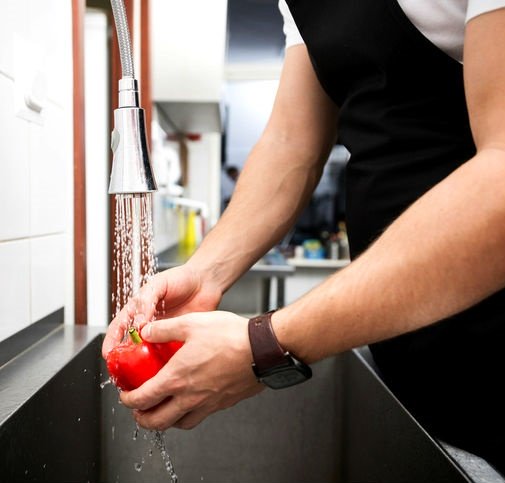(image: iStock)
We’ve been in the grips of the world’s worst case of listeriosis, a foodborne disease that has claimed over 100 lives to date. And although the blame game has been strong, it doesn’t take away from the fact that we all need to arm ourselves with as much information as possible in order to avoid coming into contact with this (and other) life-threatening bacteria.
Listeria can survive in the fridge even at two degrees Celsius. “The bacteria could get stuck on pallets used to move foods. It could stick to the crates goods are packed in. It will survive just about anywhere,” says Dr Juno Thomas from the National Institute for Communicable Diseases.
ALSO READ: Is Listeriosis contagious and other important facts
The Specialists, a South African pest control company states that “80% of all infectious diseases are spread by touch”.
Dwell on that for a second… how many times a day do you touch something that someone else has touched? Money? A button in the elevator? The door of an Uber? The flushing lever on the toilet? A remote control? A cell phone?
When you’re eating out at a restaurant the number of ‘cross touches’ is endless (bill folders and salt or pepper shakers are just a few) and even though as customers we can arm ourselves as best we can by always having waterless sanitiser in our bags and ensuring we wash our hands before eating etc. There’s also a hefty responsibility on the part of the restaurant and its staff to abide by standard hygiene practices.
The Department of Health, in partnership with the Departments of Agriculture and Department of Trade and Industry, are the main parties responsible for food legislation in South Africa but the Department of Health is responsible for carrying out random quarterly inspections in restaurants.
John J Coetzee, CEO at Green Worx Cleaning Solutions says, “a healthy environment must be created, one that will not negatively impact on the long-term health of employees, clients or the environment.”
Lelo Ntuntwana, Group Audit and Training Manager for The Harbour House Group says, “restaurants are inspected randomly and most are for business license purposes, where the Health Inspector makes an appointment with the restaurant to monitor and report on hygiene levels.”
But restaurants cannot rely on the government alone to protect consumers and restaurateurs from the risk of food-related diseases, there’s also an onus on consumers and restaurant owners to become informed and knowledgeable about food issues.
Harbour House Group has invested in an internal audit team that carries out audits in all of its restaurants twice a month to ensure that the quality of food safety procedures and standards are met. An audit report consisting of food safety, health and hygiene are used to hold each store accountable for complying with the necessary regulations.
But in reality are all food establishments and eateries as vigilant?

